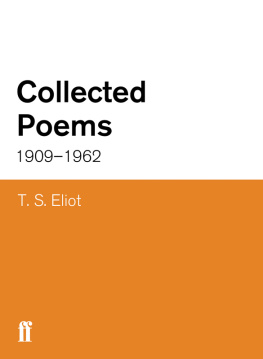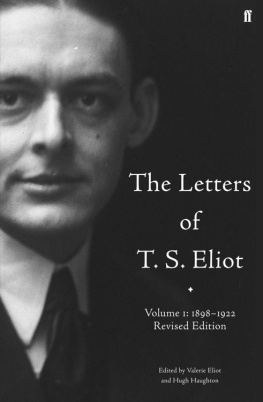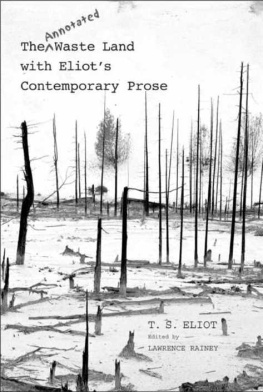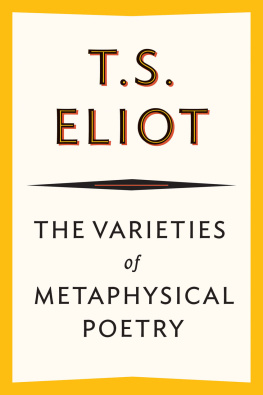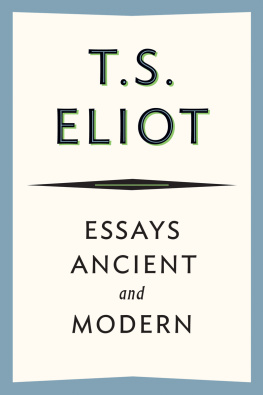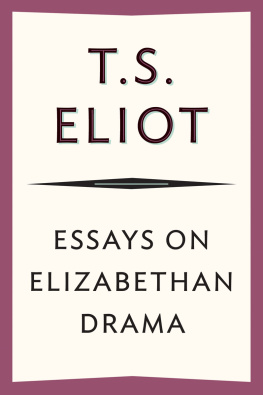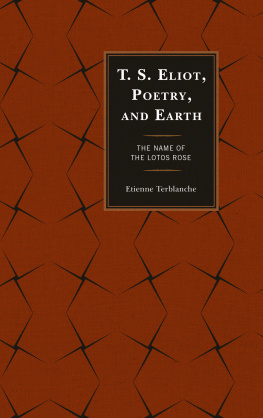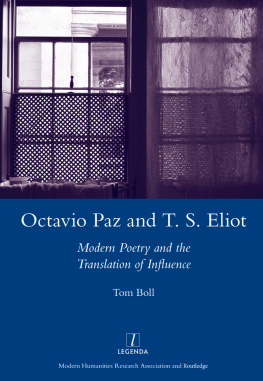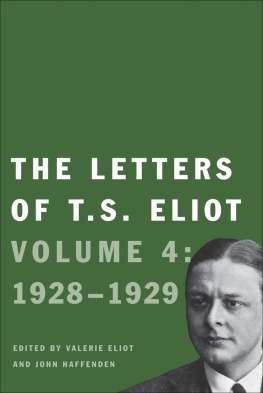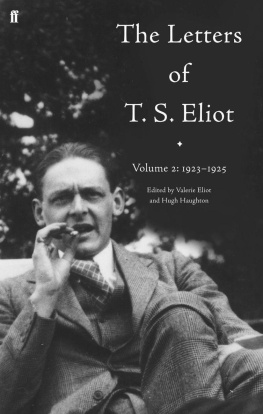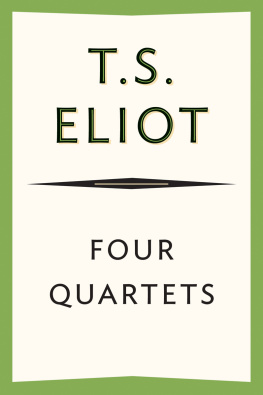trattando lombre come cosa salda .
The Love Song of J. Alfred Prufrock
Sio credessi che mia risposta fosse
a persona che mai tornasse al mondo,
questa fiamma staria senza pi scosse.
Ma per ci che giammai di questo
fondo non torn vivo alcun, siodo il vero,
senza tema dinfamia ti rispondo .
Let us go then, you and I, When the evening is spread out against the sky Like a patient etherised upon a table; Let us go, through certain half-deserted streets, The muttering retreats Of restless nights in one-night cheap hotels And sawdust restaurants with oyster-shells: Streets that follow like a tedious argument Of insidious intent To lead you to an overwhelming question Oh, do not ask, What is it? Let us go and make our visit.
In the room the women come and go Talking of Michelangelo. The yellow fog that rubs its back upon the window-panes, The yellow smoke that rubs its muzzle on the window-panes, Licked its tongue into the corners of the evening, Lingered upon the pools that stand in drains, Let fall upon its back the soot that falls from chimneys, Slipped by the terrace, made a sudden leap, And seeing that it was a soft October night, Curled once about the house, and fell asleep. And indeed there will be time For the yellow smoke that slides along the street Rubbing its back upon the window-panes; There will be time, there will be time To prepare a face to meet the faces that you meet; There will be time to murder and create, And time for all the works and days of hands That lift and drop a question on your plate; Time for you and time for me, And time yet for a hundred indecisions, And for a hundred visions and revisions, Before the taking of a toast and tea. In the room the women come and go Talking of Michelangelo. And indeed there will be time To wonder, Do I dare? and, Do I dare? Time to turn back and descend the stair, With a bald spot in the middle of my hair (They will say: How his hair is growing thin!) My morning coat, my collar mounting firmly to the chin, My necktie rich and modest, but asserted by a simple pin (They will say: But how his arms and legs are thin!) Do I dare Disturb the universe? In a minute there is time For decisions and revisions which a minute will reverse. For I have known them all already, known them all Have known the evenings, mornings, afternoons, I have measured out my life with coffee spoons; I know the voices dying with a dying fall Beneath the music from a farther room.
So how should I presume? And I have known the eyes already, known them all The eyes that fix you in a formulated phrase, And when I am formulated, sprawling on a pin, When I am pinned and wriggling on the wall, Then how should I begin To spit out all the butt-ends of my days and ways? And how should I presume? And I have known the arms already, known them all Arms that are braceleted and white and bare (But in the lamplight, downed with light brown hair!) Is it perfume from a dress That makes me so digress? Arms that lie along a table, or wrap about a shawl. And should I then presume? And how should I begin?
.....
Shall I say, I have gone at dusk through narrow streets And watched the smoke that rises from the pipes Of lonely men in shirt-sleeves, leaning out of windows? I should have been a pair of ragged claws Scuttling across the floors of silent seas.
.....
And the afternoon, the evening, sleeps so peacefully! Smoothed by long fingers, Asleep tired or it malingers, Stretched on the floor, here beside you and me. Should I, after tea and cakes and ices, Have the strength to force the moment to its crisis? But though I have wept and fasted, wept and prayed, Though I have seen my head (grown slightly bald) brought in upon a platter, I am no prophet and heres no great matter; I have seen the moment of my greatness flicker, And I have seen the eternal Footman hold my coat, and snicker, And in short, I was afraid.
And would it have been worth it, after all, After the cups, the marmalade, the tea, Among the porcelain, among some talk of you and me, Would it have been worth while, To have bitten off the matter with a smile, To have squeezed the universe into a ball To roll it toward some overwhelming question, To say: I am Lazarus, come from the dead, Come back to tell you all, I shall tell you all If one, settling a pillow by her head, Should say: That is not what I meant at all. That is not it, at all. And would it have been worth it, after all, Would it have been worth while, After the sunsets and the dooryards and the sprinkled streets, After the novels, after the teacups, after the skirts that trail along the floor And this, and so much more? It is impossible to say just what I mean! But as if a magic lantern threw the nerves in patterns on a screen: Would it have been worth while If one, settling a pillow or throwing off a shawl, And turning toward the window, should say: That is not it at all, That is not what I meant at all.
.....
No! I am not Prince Hamlet, nor was meant to be; Am an attendant lord, one that will do To swell a progress, start a scene or two, Advise the prince; no doubt, an easy tool, Deferential, glad to be of use, Politic, cautious, and meticulous; Full of high sentence, but a bit obtuse; At times, indeed, almost ridiculous Almost, at times, the Fool. I grow old I grow old I shall wear the bottoms of my trousers rolled.
Shall I part my hair behind? Do I dare to eat a peach? I shall wear white flannel trousers, and walk upon the beach. I have heard the mermaids singing, each to each. I do not think that they will sing to me. I have seen them riding seaward on the waves Combing the white hair of the waves blown back When the wind blows the water white and black. We have lingered in the chambers of the sea By sea-girls wreathed with seaweed red and brown Till human voices wake us, and we drown.
I
Among the smoke and fog of a December afternoon You have the scene arrange itself as it will seem to do With I have saved this afternoon for you; And four wax candles in the darkened room, Four rings of light upon the ceiling overhead, An atmosphere of Juliets tomb Prepared for all the things to be said, or left unsaid. We have been, let us say, to hear the latest Pole Transmit the Preludes, through his hair and finger-tips. So intimate, this Chopin, that I think his soul Should be resurrected only among friends Some two or three, who will not touch the bloom That is rubbed and questioned in the concert room. And so the conversation slips Among velleities and carefully caught regrets Through attenuated tones of violins Mingled with remote cornets And begins. You do not know how much they mean to me, my friends, And how, how rare and strange it is, to find In a life composed so much, so much of odds and ends, (For indeed I do not love it you knew? you are not blind! How keen you are!) To find a friend who has these qualities, Who has, and gives Those qualities upon which friendship lives. How much it means that I say this to you Without these friendships life, what cauchemar! Among the windings of the violins And the ariettes Of cracked cornets Inside my brain a dull tom-tom begins Absurdly hammering a prelude of its own, Capricious monotone That is at least one definite false note.

